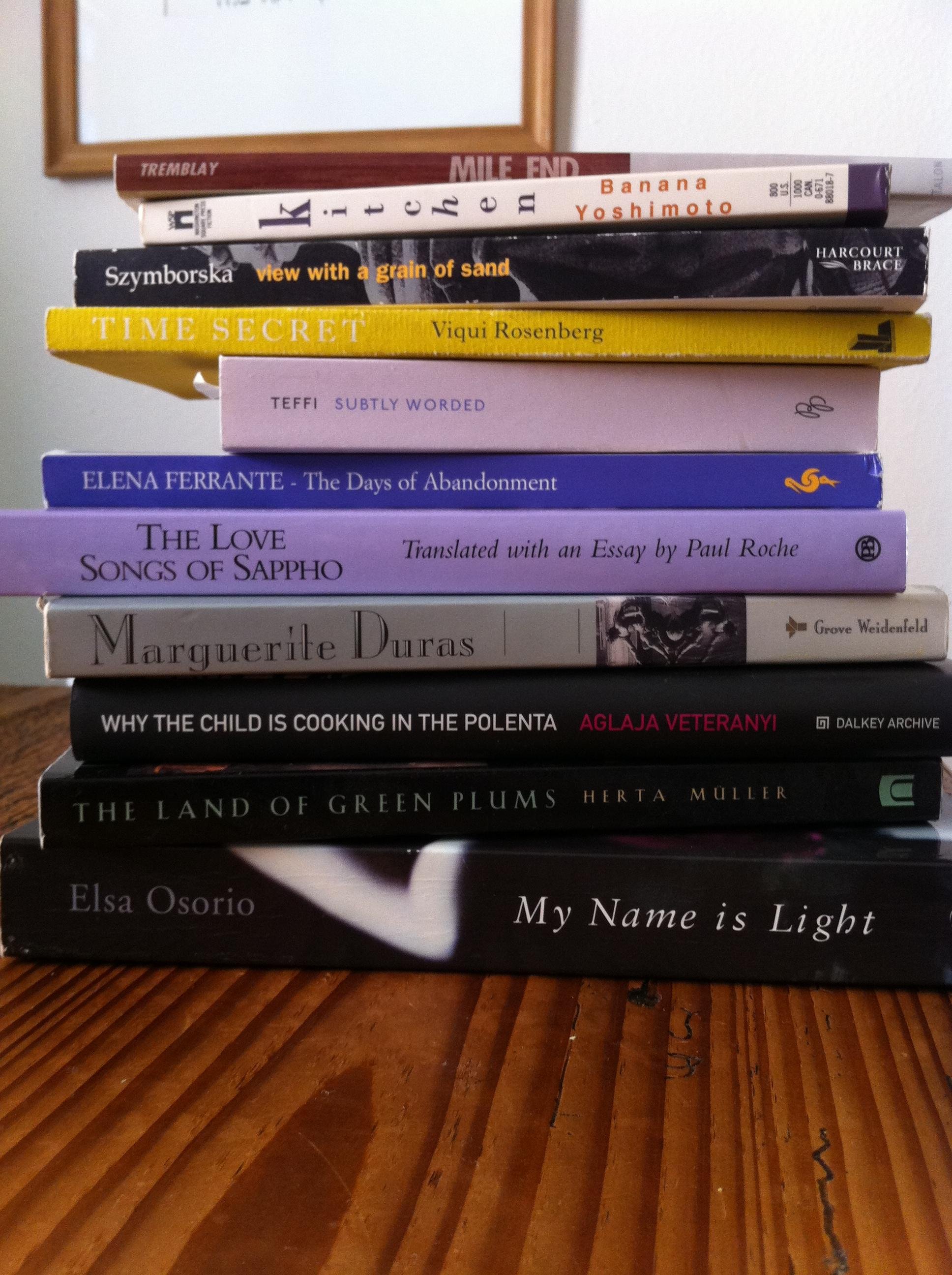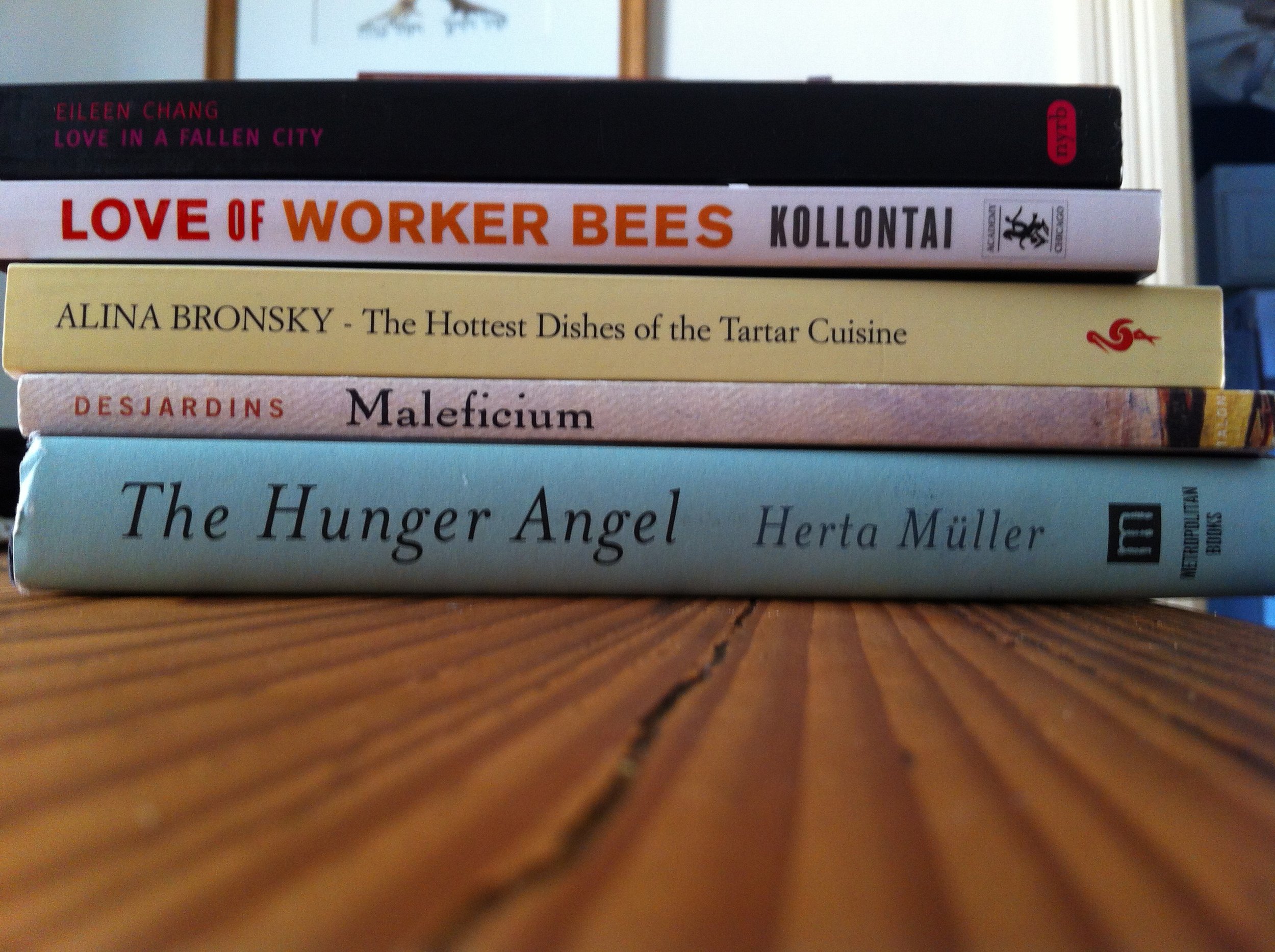The term "dumpster fire" has been used in reference to 2017 at least several million times. At one point in October, I considered taking some classes on how to cope with anxiety and insomnia that were organized specifically in response to our collective ongoing sense of doom. I didn't though—because I was overwhelmed! Ha.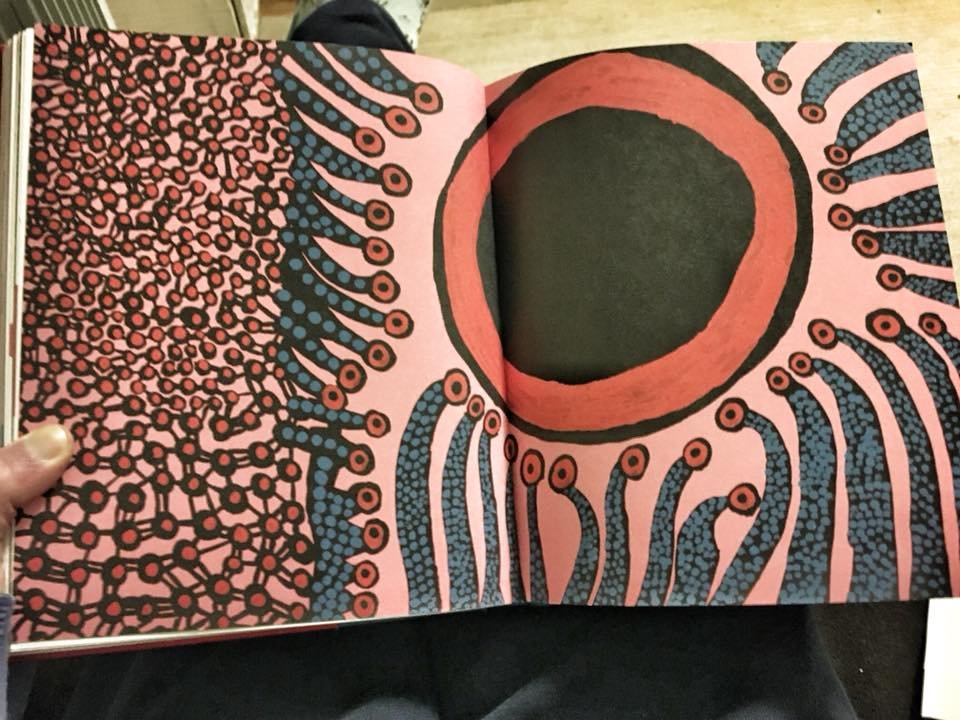 Despite everything, I need to celebrate 2017 on a personal level. Daughters of the Air, which I'd toiled over for years, finally came out, and people are reading it and telling me they are enjoying it! Michael and I celebrated the holiday season with candles and latkes and lights and dim sum and snow (!) and The Shape of Water (a beautiful love story!) and chocolate peanut butter pie and New Year's Eve back at the Hotel Sorrento's Fireside Lounge for reading (me, Teffi's Subtly Worded, him Hanna Krall's Chasing the King of Hearts, which I'm happily adding to my Women in Translation Month queue), writing, live jazz, people watching, and bubbles. What more could I ask for?
Despite everything, I need to celebrate 2017 on a personal level. Daughters of the Air, which I'd toiled over for years, finally came out, and people are reading it and telling me they are enjoying it! Michael and I celebrated the holiday season with candles and latkes and lights and dim sum and snow (!) and The Shape of Water (a beautiful love story!) and chocolate peanut butter pie and New Year's Eve back at the Hotel Sorrento's Fireside Lounge for reading (me, Teffi's Subtly Worded, him Hanna Krall's Chasing the King of Hearts, which I'm happily adding to my Women in Translation Month queue), writing, live jazz, people watching, and bubbles. What more could I ask for?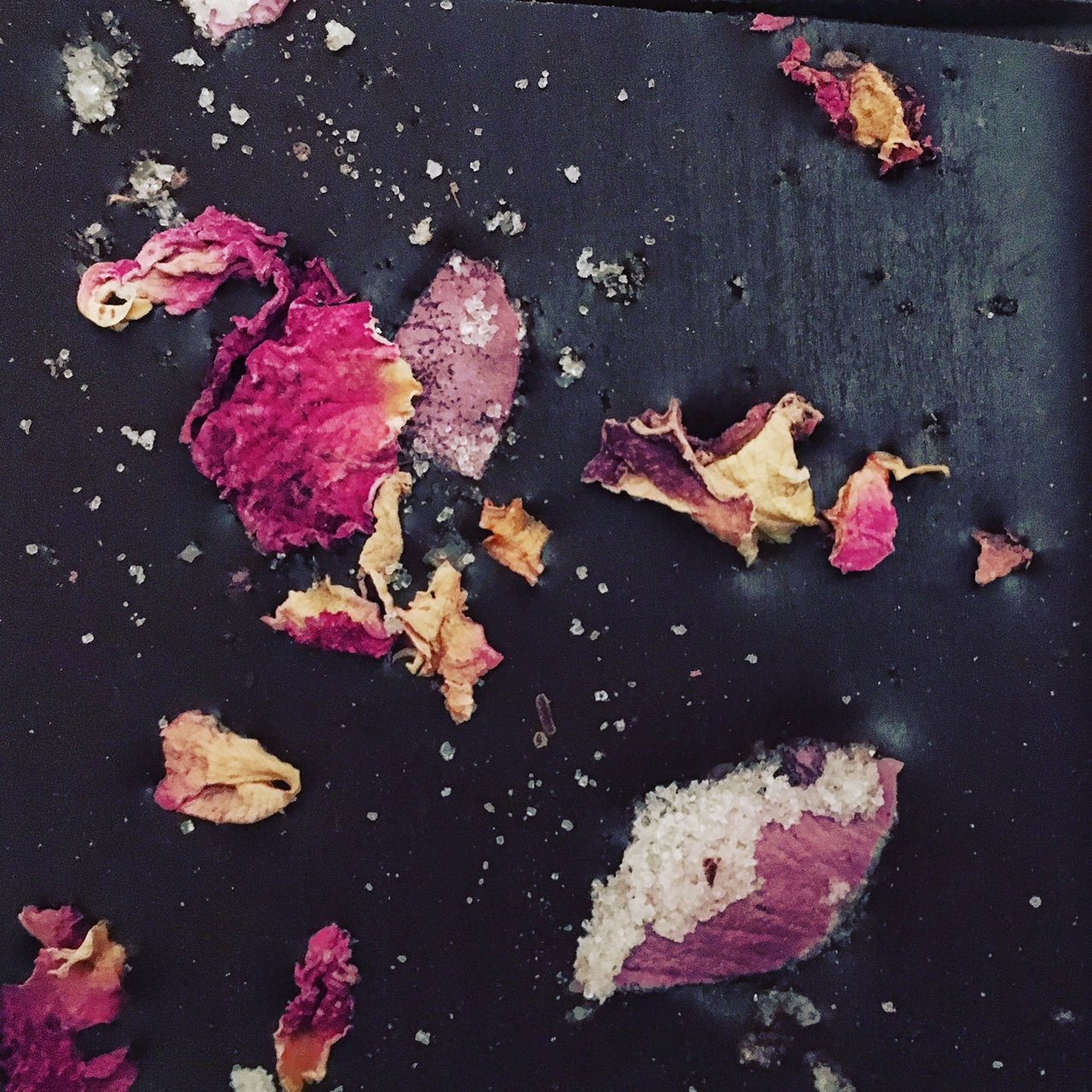 The day after Shelf Awareness called Daughters "a striking debut from a writer to watch," The Seattle Review of Books included it among five Seattle novels that made Paul Constant's year:
The day after Shelf Awareness called Daughters "a striking debut from a writer to watch," The Seattle Review of Books included it among five Seattle novels that made Paul Constant's year:
Anca Szilágyi’s Daughters of the Air is a fantastic debut — a magical realist fairy tale set in gritty New York City. It’s the kind of book that leaves you utterly confounded at the end, as you try to remember all the twists and turns that you took along the way. It feels like an impossible book, somehow — a product of alchemy, a creation of unearthly talents.
Wow! The book hasn't been panned yet, but when it does, I'll hang on to these two reviews for dear life. I was also super happy to see Tara Atkinson's novella Boyfriends included in the end-of-year list; I gobbled it one sitting and highly recommend it.Yesterday afternoon, I was thrilled to see The Seattle Times reviewed Daughters too—my first review in a major American newspaper!
Anca L. Szilágyi’s intense debut novel, "Daughters of the Air," locates a deeply personal story against the surreal backdrop of [Argentina's Dirty War].
[gallery ids="4953,4952" type="rectangular"]I'll be moseying up to a newsstand later today so I can rustle up the paper and feel the newsprint on my fingers.In other news...
- Every year, I strive to collect 100 rejections. (Why? See this wonderful Lit Hub article by Kim Liao.) In 2016, I made it to 106, plus eight acceptances. In 2017, I garnered 93 rejections and 16 acceptances. This is actually bad in terms of my other annual goal, which is to be rejected 90% of the time. I need to aim higher.
- There are just four spots left in my online Fiction II class at Hugo House, which begins on January 14. You can sign up here.
Thank you for reading all the way to the end of this longer-than-usual blog post! As a gift, here is a Goodreads giveaway for you. Already read Daughters? Leaving a review on Goodreads, Amazon, or Powell's would help spread the word! You can do this regardless of how you obtained the book (other bookstores, my publisher, the library, and all that fun stuff).Onward!

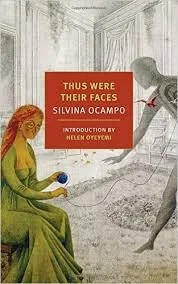
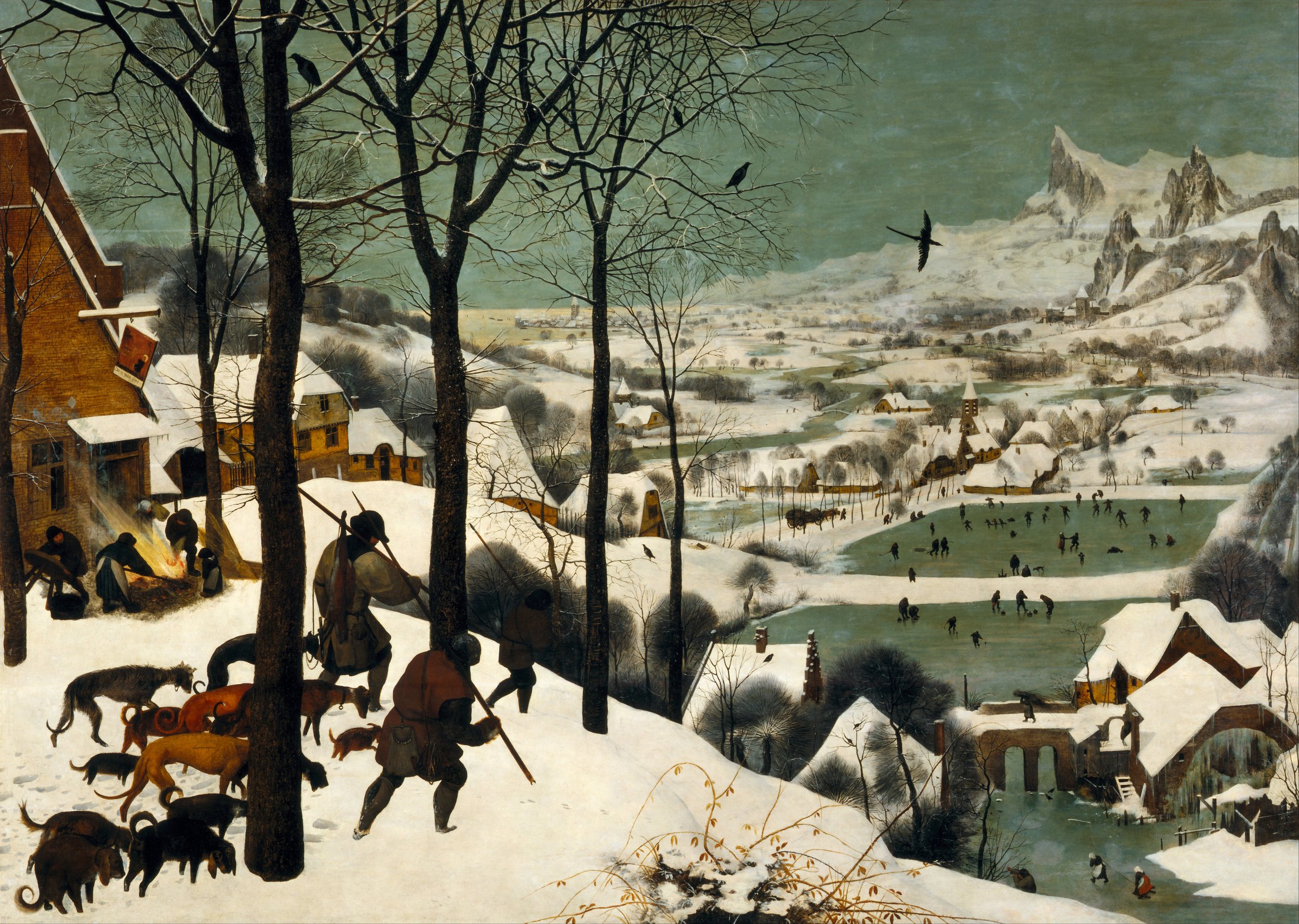 Pieter Bruegel the Elder - Hunters in the Snow (Winter) - 1565
Pieter Bruegel the Elder - Hunters in the Snow (Winter) - 1565 I just got my contributor copy of
I just got my contributor copy of 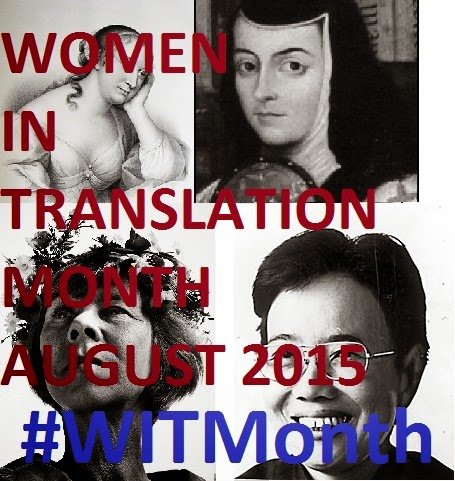 August is
August is 